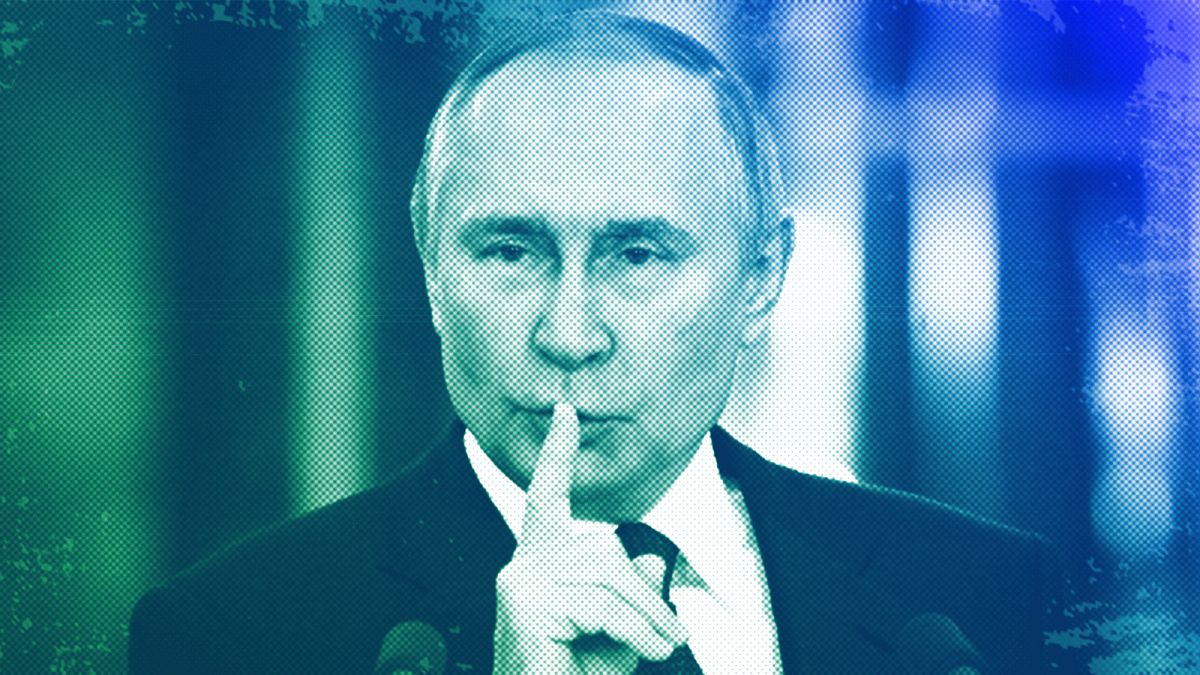Russia’s ever-escalating hybrid war has the EU in its sights

The opinions expressed in this article are those of the author and in no way reflect the editorial position of Euronews.
Considered individually, these hostile actions may not be more than a nuisance. But together they form a comprehensive package of hybrid warfare that is constantly testing its limits, writes Alexander Borum.
Despite the spreading war and the ongoing cost of living crisis, the life of the average European citizen is peaceful and comfortable.
This is confirmed by the recently published Global Peace Index 2024, which shows that the list of the ten most peaceful countries continues to be dominated by European entries.
But scratching beneath the surface reveals a darker reality: a Europe embroiled in a protracted and bitter hybrid war that demands our attention.
Since Russia’s large-scale invasion of Ukraine, the West has pledged unprecedented levels of military and economic support to stem the wave of unbridled violence against the country.
This support has been crucial in securing Ukrainian independence, but has also taken Russia’s ongoing hybrid war against the West, particularly against the European Union, to a new level.
The Kremlin is not letting up
Although Russia is the most prominent aggressor, it is not alone in its anti-Western aspirations. It carefully balances its interests with those of the West, involving partners such as Belarus, Iran and North Korea.
By hosting Russian nuclear weapons and troops and arming and supplying Russian forces, these countries are exacerbating Russian aggression. But China remains a crucial piece of the puzzle.
At the recent NATO summit in Washington, his role as a key enabler of Russian aggression in Ukraine and an active participant in the hybrid war against the transatlantic partners was highlighted.
While Russia is not alone, it is a uniquely aggressive actor, waging a multi-faceted war against the West from the relative safety of obscurity.
Following the recent European Parliament elections, consulting firms identified tens of thousands of accounts spreading disinformation as EU citizens sought to cast their votes in an election that saw a strong rise of populist parties with pro-Vladimir Putin positions.
False stories have also emerged outside of elections, such as the Bugatti affair, which tells the story of Olena Zelenska, the First Lady of Ukraine, who bought a luxury car for 4.5 million euros at a time of particular need for Ukraine.
Of course, the lie, which had been created using deep fake techniques, fake media and fake information, was quickly exposed – but not before knee-jerk reactions shaped political discourse across Europe, at least temporarily.
Subversions are increasing in scale
But where disinformation could cause unrest and instability, more sinister machinations are at work, and networks of infiltrators and intelligence agents are increasingly being uncovered in the European Union.
From prominent academics in the Baltics to expatriate florists in Slovenia with direct ties to Russian intelligence, the situation is looking increasingly bleak.
Financial institutions such as Pravfond enable Russian intelligence services to finance unrest and destabilization efforts in Europe.
Pravfond expands the reach and scale of Russia’s political war against Europe. Its funds benefit anti-democratic movements and political groups with pro-Russian, isolationist or protest-oriented stances. In addition, the fund recruits European agents and conducts large-scale intelligence and influence operations across continental Europe.
In addition to unrest from within, Russia and its close ally Belarus are also trying to exert pressure on Europe’s external borders.
By exploiting migration and providing migrants with guidance, routes and supplies, Russia and Belarus have adopted a ruthless method of hybrid warfare.
By exploiting desperate people and hurling them to Europe’s borders, they not only fuel the need for robust border protection, but also fan the flames of anti-immigration rhetoric that often emanates from political parties whose stance favors Russian interests.
From assassinations to sabotage, anything is possible
When considered individually, these hostile actions may constitute no more than a nuisance.
But together, these actions form a comprehensive package of hybrid warfare that continually pushes the boundaries. In recent months, Russia has turned the Baltic Sea into the front line for the escalation of its hybrid war against the West, deliberately provoking EU member states in the region.
An important instrument in this regard is the revival of border conflicts in the Gulf of Finland, along the Narva River with Estonia and in the sea around the Russian enclave of Kaliningrad through the unilateral redrawing of borders, which directly violates international law.
At the heart of Russia’s escalating hybrid war against Europe was a series of special operations within the Schengen borders.
There have been several assassinations of political dissidents in Europe over the past decades of Putin’s rule, but the recent assassination of Armin Papperger, CEO of Rheinmetall, has taken the attempt to suppress support for Ukraine to a new level.
Acts of sabotage have rocked Europe in recent years. As European intelligence services continue to detect an increase in Russian probing efforts in the arms industry, undersea cables and critical infrastructure, there will likely be further attempts to disrupt supply lines to Ukraine through sabotage in the future.
Above us and at sea, European air and shipping traffic are increasingly the target of attempts to disrupt the GPS systems that are important for safe navigation.
The ultimate consequences of such disruptions could be catastrophic incidents resulting in irreparable environmental damage or significant civilian casualties – a clear example of the seriousness of the situation.
Keep an eye on Ukraine
Given the enormous pressure on Europe, it was perhaps no surprise when Danish Defence Minister Troels Lund Poulsen noted in February that Russia would probably be in a position to test Article 5 and NATO solidarity within a period of three to five years.
This statement is similar to that made by German Defense Minister Boris Pistorius, who noted in January that NATO must expect an attack on a member state within five to eight years and stressed the need for unity and solidarity among partners.
Given the threat of further escalation, one might be tempted to seek comfort from NATO.
But given the recent assassination attempt on former US President Donald Trump and President Joe Biden’s poor performance in his re-election bid, NATO is likely to face a harsh new reality if Trump takes office in November.
Given that the US under Trump is pursuing an increasingly isolationist policy, has turned eastwards and has made repeated statements in the past that sow distrust of the unity of the Alliance, it is becoming increasingly urgent for Europe to take responsibility for its security needs.
It is crucial for Europe to do whatever is necessary to keep Ukraine fighting in case the US weakens, because any other course would invite disaster.
Alexander Borum is a Policy Leader Fellow at the European University Institute in Florence and focuses on the Common Security and Defence Policy of the European Union.
At Euronews we believe every opinion matters. Contact us at [email protected] to send in any suggestions or ideas and join the discussion.



